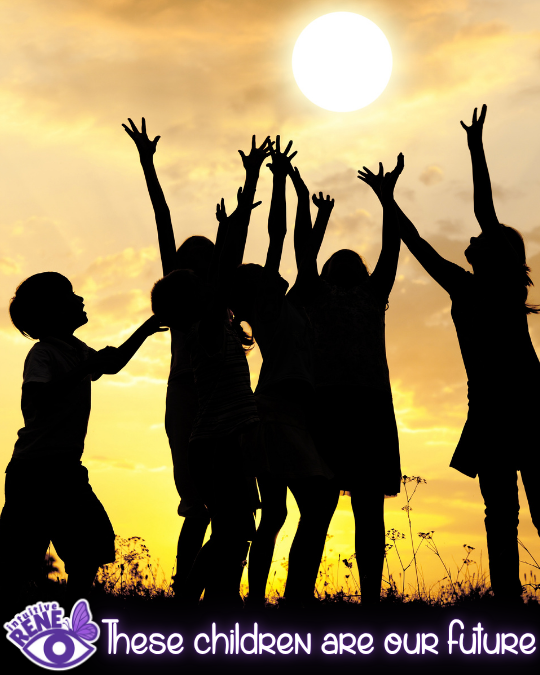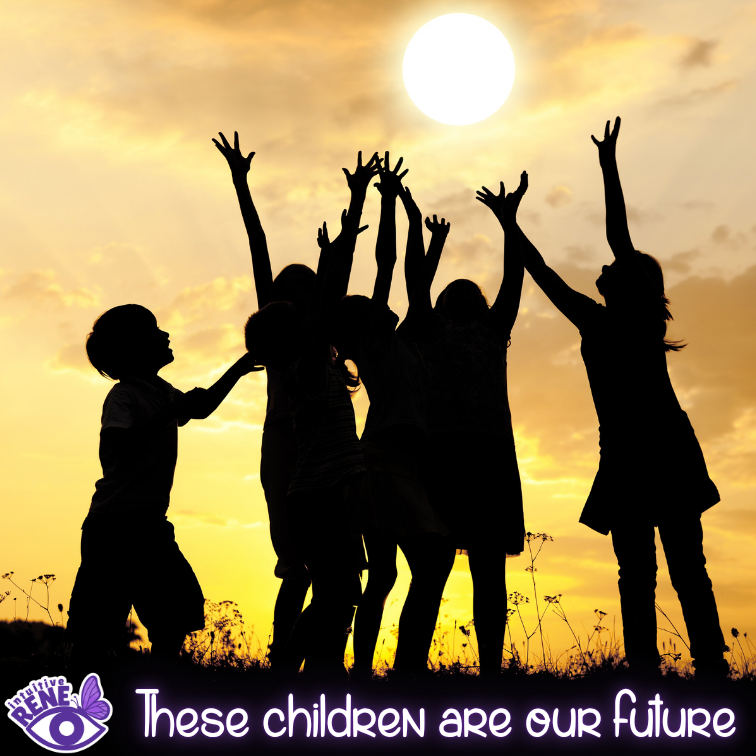Why Today’s Children Are So Different – And How to Support Them
All around the world, families are noticing a shift in the way children are arriving, growing, and expressing themselves. Parents, grandparents, aunts, uncles, teachers, and caregivers often find themselves at a crossroads: the methods that worked for previous generations don’t seem to fit anymore. These children don’t always respond to traditional structures, rules, or expectations. Instead, they ask us—sometimes quietly, often loudly—to look at life differently.
From a spiritual perspective, this is not an accident. The children being born today are not “difficult” or “broken.” They are arriving with new needs, desires, and purposes designed to challenge us as a society and push humanity into its next stage of evolution.
Why These Children Are So Different
The world is evolving, and so are the souls who enter it. Spiritually, we can see that these children are carriers of new energy. They come with heightened awareness, deeper sensitivities, and strong inner callings. Some may appear restless or defiant, while others seem anxious or withdrawn. Many are exceptionally creative, intuitive, or deeply empathetic, even from a young age.
They are born into a world of rapid change—technological, social, and environmental. Unlike previous generations, they do not accept “this is how it has always been” as an answer. They are wired to push against outdated systems in education, parenting, work, and even spirituality itself.
The Challenges They Face
- Sensory overload: overstimulation from technology, crowds, or even emotional environments.
- Emotional intensity: big feelings that they don’t yet have the tools to manage.
- Resistance to authority: not out of rebellion, but because they sense when rules are unfair or outdated.
- Identity struggles: growing up in a time of shifting values, they may wrestle with questions of who they are and how they fit.
These challenges can show up as behavioral issues, learning difficulties, anxiety, or withdrawal. Spiritually, they are not flaws—they are signals. They show us what needs to be healed, changed, or released in our world.
The Challenges They Bring Us
For the adults in their lives, these children can be confusing and exhausting. They don’t always respond to discipline or tradition. They may question authority in ways that feel uncomfortable. They often ask us to slow down, to listen differently, and to release the “old ways” we may cling to for comfort.
This is where the deeper purpose emerges:
-
They force us to grow—challenging us to parent, teach, and relate in more conscious ways.
-
They hold up a mirror—revealing where we, as adults, may be rigid, fearful, or unwilling to change.
-
They push society forward—by refusing to accept systems that no longer serve humanity’s best interests.
In truth, their challenges are invitations—opportunities for us to expand, adapt, and evolve right alongside them.
How We Can Support Them (and Ourselves)
The good news is that we are not powerless. These children don’t need us to have all the answers—they need us to be willing to learn with them. Here are some compassionate approaches:
Listen Beyond Words Many children communicate through behavior, art, or energy rather than direct speech. Pay attention to what they show you, not just what they say.
Validate Their Feelings Instead of dismissing emotions as “too much” or “overreacting,” acknowledge them. A simple “I see you’re feeling upset, and that’s okay” goes a long way.
Create Safe Spaces Children need environments—at home, school, and beyond—where they can express themselves without fear of judgment or punishment.
Encourage Curiosity They thrive when they’re allowed to ask questions, explore ideas, and challenge assumptions. Let curiosity guide the learning process.
Model Balance and Self-Care When adults tend to their own emotional and spiritual needs, children feel safer. They learn from how we handle stress, boundaries, and growth.
Be Open to Change The parenting or teaching style that worked 20 years ago may not work now. Flexibility and creativity are essential.

These children are not here to make life harder—they are here to guide us forward. They bring light to what must evolve within us, our families, our schools, and our communities. While it can be overwhelming, it is also profoundly hopeful.
Imagine a world where empathy, authenticity, and creativity are the norm. Imagine systems built on fairness, inclusivity, and love. This is the world these children are pulling us toward. And though the journey may stretch us, it will also heal us.
So when you find yourself frustrated or weary, remember: you are not failing, and they are not failing. You are part of a sacred partnership, where each challenge is an opening for growth. Together, child and adult, you are writing the next chapter of humanity—one where love, understanding, and evolution walk hand in hand.

